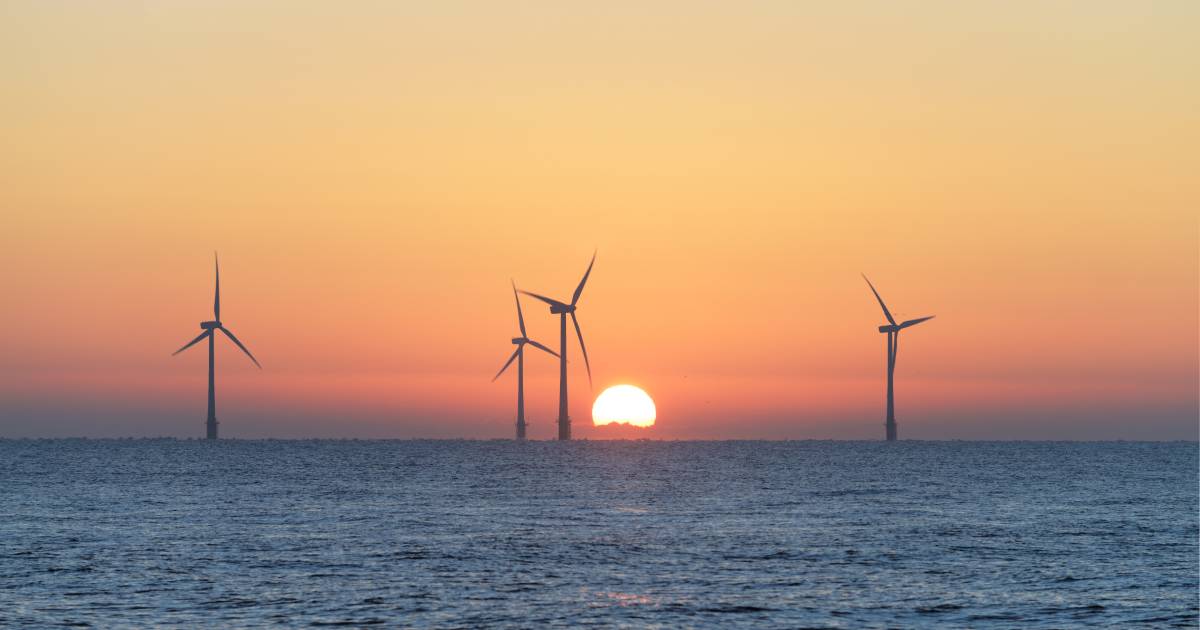How the North East is leading the UK's transition to Net Zero
18 August 2021 | By: Newcastle University | 3 min read
Dr Henry Kippin, MD of the North of Tyne Combined Authority, and Professor Jane Robinson, Pro-Vice Chancellor, Engagement and Place at Newcastle University, told us how the North East is emerging as the driving force behind the UK's transition to Net Zero.
UK's first full-scale giga factory in the North East
Last month, Britishvolt broke ground on a 95-hectare site in Blyth, Northumberland, chosen for the first full-scale battery-making gigafactory in the UK. This was the moment when the North East started evolving from a declining industrial heartland to a green economy powerhouse.
The £2.6bn investment is one of the UK’s biggest-ever industrial investments and it’s the largest one in the North East of England since the arrival of Nissan in 1984.
Nissan, in partnership with Envision AESC, also announced a £1bn investment to build a second gigafactory in the region, located close to its Sunderland car manufacturing plant. Together these two proposals could create over 4,500 direct jobs and a further 9,500 in the wider supply chain.
Many newly announced investments demonstrate the potential of the North East to deliver sustainable and inclusive growth and make a valuable contribution to the UK’s ambitious Net Zero agenda.
The Green Economy Summit
The keynote address was delivered by Minister for Business, Energy and Clean Growth, the Rt Hon Anne-Marie Trevelyan MP. Mrs Trevelyan emphasised the importance of building back better, greener and faster post-Covid.
The focus was on how the region can contribute to national environmental targets. The North East has the expertise and assets that will allow it to seize opportunities of this transition to a green economy, to deliver sustainable and inclusive growth.
The North East has the capacity to become a leader in the development and production of offshore renewables and subsea; decarbonised heat; decarbonised transport; smart grids; hydrogen; and decarbonisation of buildings and materials. This in turn will lead to opportunities for business and job growth in the supply chain.
Implementing change is already on the agenda. The Green New Deal Fund is an investment fund created by the North of Tyne Combined Authority to tackle carbon emissions and deliver inclusive economic growth. £18 million will be invested in both low carbon infrastructure and directly into SMEs to support business growth and innovation. The fund will catalyse investment in green growth, stimulate innovation, and enable sector and supply chain growth.
Collaboration is critical to the successful transition to a low carbon economy and achieving Net Zero emissions. This collaboration is can already be seen between universities, colleges, industry, the public sector and communities.
What puts the North East in a position to lead the Net Zero transition?
The North East can become a partner of choice for the industry and the Government for developing and delivering new technologies and solutions that will fuel green economic growth.
The region’s industrial heritage positions it as the perfect place for developing and commercialising new solutions. An example of this is the key role played by the Offshore Renewable Energy Catapult in the commercial development of the world’s largest offshore wind turbine blades.
The North East has a rich engineering and manufacturing heritage, a legacy of skills and development sites in the right locations. It’s uniquely positioned, combining rural, semi-rural, urban and coastal areas. These natural assets can improve the quality of life, biodiversity and carbon sequestration.
Innovation is at the heart of the North East, where new approaches are tested in real-time and at scale, and creative solutions to challenges related to climate change and adaptation are found.
Working in partnerships, the North East is driving innovation and commercialisation, growing the supply chains of the future, making the region more attractive for inward investment.
Preparing for the zero-carbon future
It is important not only to grow the job market but also to support the development of skills needed in the future. The North East has training provisions for skills at all levels required for future green jobs.
This zero-carbon mission is driven through a shared sense of purpose across the region. Local, national and international partnerships draw together the necessary resources, expertise and investment.
We are in a strong position to lead the way to Net Zero and seize the opportunities which arise in the transition to a low carbon economy. However, there is still much to be done and some big plays to support - an investment in the Tyne can help safeguard the future operation of the river and attract new jobs, or an investment in R&D facilities can guarantee our competitive position.
We need to think globally, but also locally. Change can be achieved through large-scale action by Government and corporates, but also through millions of individuals and communities finding solutions at a local level.
The success of the Green Energy Summit was a testament to the willingness of people from all walks of life to join together and tackle climate change while building back better and greener.
We can lead the way in solving the problems of the climate crisis whilst growing our economy in a green and sustainable way and ensuring a secure future for all.
COP26 provides a focal point for collective action on climate change. In our COP26 blog series, you can find out about some of the many projects related to climate change going on in the University and our wider community.
About Professor Jane Robinson
 Jane Robinson is the University’s first Pro-Vice Chancellor, Engagement and Place and is building on many of the lessons she learned in her previous role as Chief Executive of Gateshead Council and Chief Operating Officer at Durham University.
Jane Robinson is the University’s first Pro-Vice Chancellor, Engagement and Place and is building on many of the lessons she learned in her previous role as Chief Executive of Gateshead Council and Chief Operating Officer at Durham University.
These include how culture plays a role in defining a ‘place’ and how partnerships can tackle social and economic challenges.
